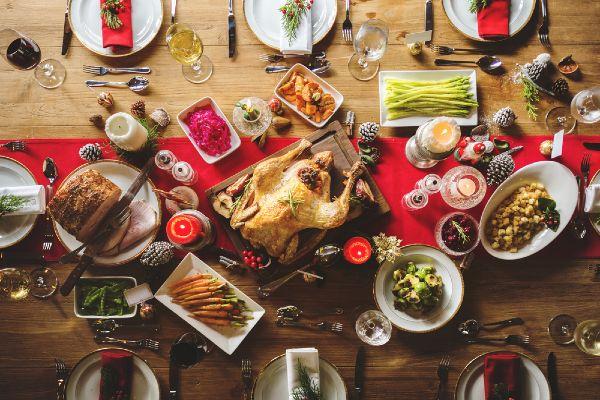There are an estimated one million cases of food poisoning in the UK every year, and without attention to food hygiene, this doesn’t stop during the festive season.
To save your loved ones from a nasty bout of food poisoning over the holidays, follow these tips from the Food Standards Agency to keep your festive season truly the most wonderful time of the year.
Cooking a Christmas roast for a large gathering can be a challenge, and it is vital that the turkey, or other meat of choice, is stored, defrosted and cooked correctly. Likewise, leftovers from Christmas need to be reheated and consumed within specific timeframe in order to avoid food poisoning.
While many people mistakenly think that food poisoning is just a passing stomach bug, it can have serious consequences – especially for children, people already in ill-health and older people.
Shopping:
Avoid cross-contamination when doing your Christmas food shopping: make sure you take enough bags, so you can pack raw and ready-to-eat food separately.
Storing the turkey:
In the fridge, store the turkey and other raw food separately from cooked and ready-to-eat food. Keep raw food covered and chilled on the bottom shelf of the fridge, and regularly check that the fridge is cold enough. Your fridge should always be below 5°C.
Defrosting your turkey:
If your turkey is frozen, make sure you check the guidance on the packaging to ensure you have enough time to fully defrost it. Defrost it according to size – a typical turkey weighing 6 to 7kg could take as much time as four days to fully defrost in the fridge.
If there aren’t instructions on the packaging, these times are useful as a guide:
In a fridge, at 4°C, allow around 10 to 12 hours per kg (remember that not all fridges will be this temperature).
In a cool room (below 17.5°C) allow approximately 3 to 4 hours per kg, or longer if the room is particularly cold
Always defrost the turkey in a container large enough to catch any juices. Do not defrost food at room temperature. If necessary, use a microwave on the ‘defrost setting’ directly before cooking.
Preparing your turkey:
Avoid cross-contamination by using different utensils, plates and chopping boards for ready-to-eat food and raw food. Don’t wash raw turkey or any other meat – it splashes germs onto your hands, clothes, utensils and worktops. Thorough cooking will kill any bacteria present.
Cooking the turkey:
To work out the cooking time for the turkey or other meat, check the guidance on the packaging, and the manufacturer’s handbook for your oven if you can. As a general guide, allow 45 minutes per kg plus 20 minutes for a turkey under 4.5kg. Allow 35 minutes per kg for a turkey weighing more than 6.5kg.
Using a temperature probe or cooking thermometer:
If you’re using a temperature probe – used to check the internal temperature occasionally – you should ensure the thickest part of the bird (between breast and thigh) reaches a temperature of 70°C for more than two minutes. This temperature guide also applies if you’re using a cooking thermometer – which is left in the bird while it cooks.
Checking it’s cooked:
Always check that the meat is steaming hot throughout, there is no pink meat visible when you cut into the thickest part, and that the meat juices run clear.
Time-saving hot turkey tip:
Cooking your turkey in advance could save you getting stressed and gives you more time on the day with family and friends. Once your turkey is cooked and cooled, slice and batch it into portions to store in the freezer. You can then take out and reheat the amount you need when you need it.
Love your leftovers:
Once Christmas day is over and you have lots of delicious leftovers, be sure to follow these guidelines.
Cool any leftovers at room temperature, then cover them and ensure they go into the fridge or freezer within one to two hours
If you freeze cooked meats, once defrosted, eat the food within 24 hours
When you come to use frozen leftovers, make sure you defrost them thoroughly in the fridge overnight or in the microwave (on the defrost setting) and then reheat until steaming hot
Don’t forget that leftovers should be eaten or frozen within two days (one day for rice dishes)
Once you’ve followed these guidelines around food hygiene, it’s time to sit down to a perfectly cooked meal with your loved ones and enjoy this festive season.











